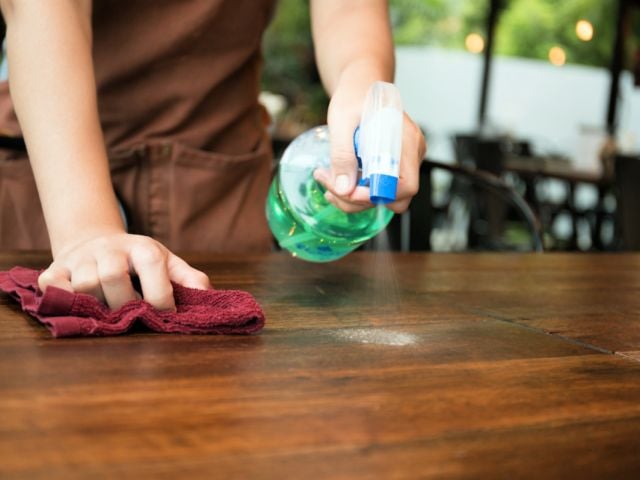
Winter is here, and that means colder temperatures and drier air. In the grips of a global pandemic, more of us are spending time outdoors. But being outside in the cold can bring cracked lips and dry skin and hair.
Heated interiors only exacerbate these problems, so we turn to moisturizers, lotions and lip balms to counteract the effects. But many of these products contain harmful ingredients that may lead to problems more serious than chapped lips.
Before you stock up on winter skin care products, check out EWG’s tips for protecting your skin from the cold weather while minimizing your exposure to potentially harmful chemicals.
Choose better products
Lotion
Lotion is the cold-weather essential for keeping exposed skin from getting too dry. Choose a thick and creamy option, and if you prefer a product with fragrance, make sure those ingredients are disclosed.
Your face can be extra sensitive to the cold air, especially since it’s hard to cover up. You want to protect your face but also be cautious about what you’re putting on it. Check out our scores for facial moisturizers in our Skin Deep® database, or on EWG VERIFIED™. If you’ll be outdoors, make sure the one you choose has adequate SPF.
Skin Deep is EWG’s publicly accessible cosmetics database that scores cosmetics and personal care products based on the hazards associated with their ingredients. EWG VERIFIED goes a step further, certifying products that meet our strictest standards for health and transparency.
People with particularly dry or sensitive skin may want to try a natural oil, such as coconut.
Lip Balm
No matter how careful you are, you can’t avoid ingesting a little bit of your lip product when you eat, drink or talk, which means it’s especially important to choose a safe one. The best choices are those that don’t contain retinyl palmitate or retinyl acetate. And it’s always a good idea to choose one with sun protection, especially if you’re spending time in the snow or near water.
Conditioner
Even your hair can get dry in the winter. When you’re looking for a hair conditioner, avoid those that list propyl paraben, or DMDM hydantoin, a formaldehyde releaser, as ingredients. They’re preservatives that can cause endocrine disruption and may trigger an allergic response.
You can check the scores of conditioners in the Skin Deep database, or look for an EWG VERIFIED product.
Wear sunscreen
It may be cold outside, but that doesn’t mean the sun isn’t shining brightly. The sun’s rays can reach you even on cloudy days. Although the risk of sunburn is lower if the sky is overcast, ultraviolet rays reflect off snow and water, increasing your exposure to UV rays.
Wear sunscreen on exposed parts of your body, especially your face. Choose one that has zinc oxide as the active ingredient. The next best choice is a product with 3 percent avobenzone. Check out EWG’s Guide to Sunscreens to find healthier products for you and your family.
Stay hydrated
Staying hydrated is very important for your skin and overall health. It helps to eat nutritious fruits and vegetables. And even though you may tend to feel less thirsty in cooler weather, it’s still important to drink plenty of water.
With naturally hydrated skin, you’ll need to use fewer products less often. You’ll not only limit your family’s exposure to the potentially harmful chemicals in commercial skin care products, but also save money.
DIY moisturizers
If you’d prefer not to use store-bought products, moisturize your scalp, lips, skin and hair with common household oils instead. Effective natural ingredients include coconut, avocado, jojoba or almond oils, and shea butter. Add essential oils for scent, but since not all essential oils are safe, check their score in Skin Deep first, and use them sparingly, because many essential oils can trigger allergic skin reactions.
For hair conditioning, try rinsing with diluted apple cider vinegar and warm water after you shampoo. Not only will this help your hair retain moisture, it will also add natural shine.
If you create your own products at home, test them on a small patch of skin for potential allergic reactions. If they’re made of perishable ingredients, their shelf life may be shorter than commercial products. If you notice a change in consistency or scent, discard them.



